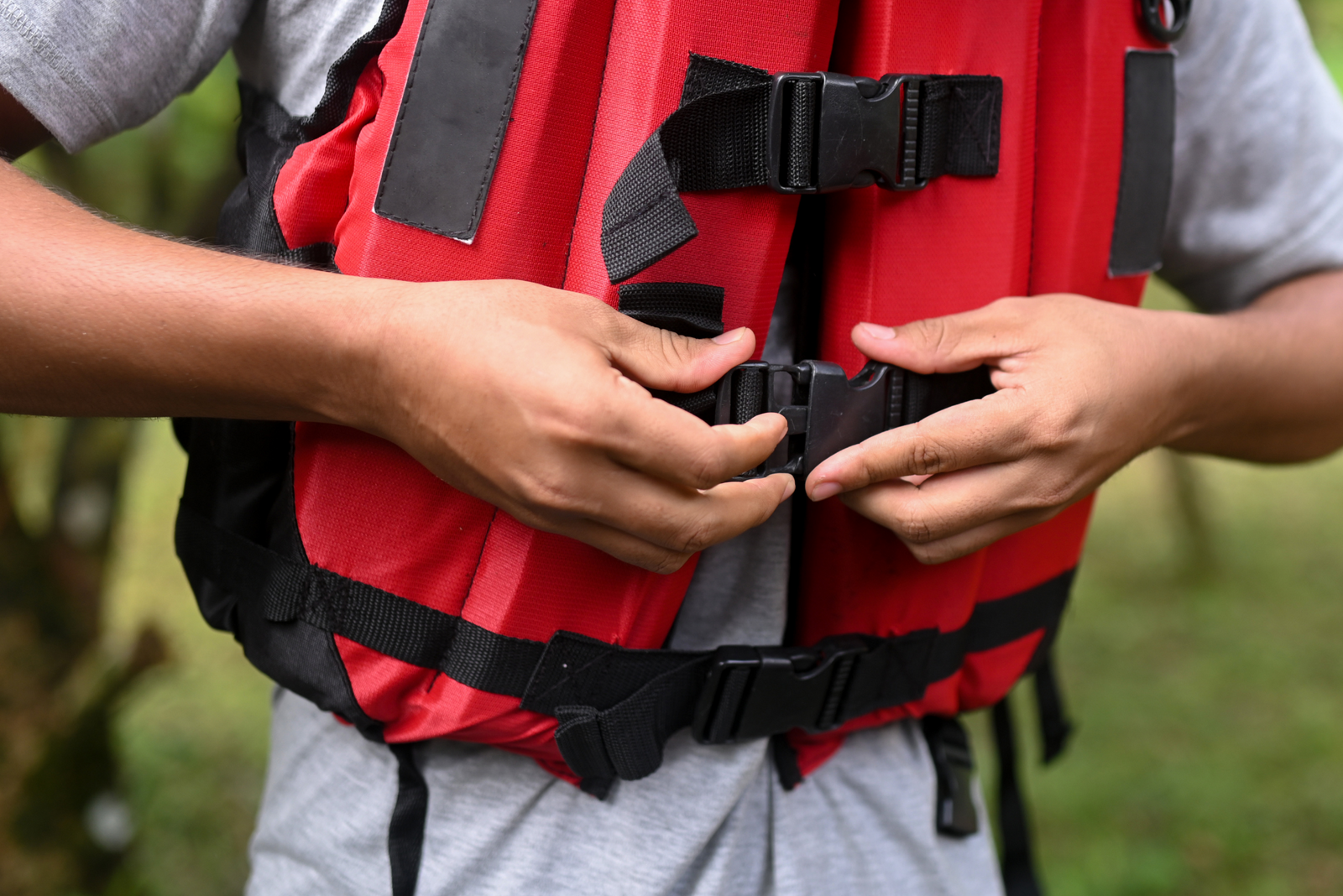Free Shipping On Orders $50+
Free Shipping On Orders $50+

How Old Do You Have to Be to Not Wear a Life Jacket on a Boat?
by Bob Figular November 19, 2024
As a mariner, you must navigate many rules and regulations to stay safe. Some of the most important requirements surround using life jackets, but they vary from state to state.
How old do you have to be to not wear a life jacket on a boat? When is the best time to wear a life jacket? What type of life jacket do you need? Here, we answer all your questions!
How Old Do You Have to Be to Not Wear a Life Jacket on a Boat?
The U.S. Coast Guard requires that boats have life jackets available for every person onboard. Whether you need to wear them depends on where you’re boating. As mentioned, each state has its own life jacket requirements based on typical conditions for certain bodies of water.
Every person aboard a vessel in Alabama must have access to a life jacket. Moreover, individuals involved in water skiing or operating personal watercraft must wear life jackets consistently.
Federal regulation requires children under 13 years old to wear a life jacket when a vessel moves. However, state laws supersede the federal guideline and can vary widely nationwide. For example, Louisiana requires children ages 16 and under to wear life jackets.
Does Boat Size Impact Requirements?
The smaller the vessel, the more likely it is to be affected by turbulent conditions. Because of this, some states require all passengers aboard small vessels to wear life jackets.
For example, Pennsylvania mandates that all boaters in vessels shorter than 16 feet must wear life jackets from November 1 to April 30 because the waters are extremely cold, thus increasing the risk of hypothermia and incapacitation.
And children under six years of age must wear a USCG-approved life jacket at all times while on any vessel less than 26 feet in length that’s underway upon Florida waters.

How Do Different Activities Affect the Need for Life Jackets?
Wearing a life jacket can minimize risk for people of all ages. Activity-specific risks will guide your life jacket selection. Here are a few tips to get you started:
- Watersports: Wear an impact-resistant life jacket to minimize the risk of high-speed impact injuries.
- Kayaking and canoeing: Prioritize buoyancy and maneuverability with a comfortable Type III life jacket in case of capsizing.
- Fishing: A fishing vest with flotation can keep you safer if you fall overboard or the weather changes unexpectedly.
- Sailing: Choose a life jacket with a harness that allows you to attach a lifeline to prepare you for varied conditions and falls.
Special-use Type V life jackets are designed for specific activities (i.e., personal watercraft use, sailing, water skiing, wakeboarding, parasailing, tubing, etc.) and must be used according to Coast Guard-approved guidelines.
Always check current local regulations and Coast Guard requirements before boating or engaging in water activities.

How Do Water Conditions Affect Life Jacket Requirements?
When you’re old enough not to wear a life jacket on a boat, you must pay careful attention to water conditions. Certain situations make life jackets appropriate for all ages — even when not legally required.
Wear a life jacket in these conditions:
- Rough water: Even the strongest swimmers struggle in rough waters. A high-buoyancy life jacket will help to keep you afloat.
- Cold water: Life jackets help with thermal protection, and the extra insulation can slow hypothermia.
- Remote areas: In areas where a quick rescue is not likely, life jackets are essential for maintaining flotation and keeping your head out of the water if you lose consciousness.
- Water traffic: Busy areas increase collision risk, so life jackets are advisable.
In addition, non-swimmers should always wear life jackets, especially children. Remember, the Coast Guard only enforces minimum requirements. They’re a starting point, not a best practice. You can always do more to prioritize your and your passengers’ safety on the water.
International Life Jacket Regulations
So, how old do you have to be to not wear a life jacket on a boat worldwide? Regulations vary from country to country. Some places require people to wear them; others only mandate that they’re accessible.
If you’re boating in international waters, the best option is to look up the requirements to ensure compliance.
How Do Life Jackets Affect Insurance?
Complying with local life jacket regulations impacts your insurance premiums, coverage, and claim validity.
If you’re non-compliant, your insurance company might decline your claims, raise your premiums, or restrict your coverage. Insurers may also assess policyholder risk based on safety practice adherence, including life jacket usage.
For example, Germany does not have specific life jacket requirements for one to be onboard. But if you don’t have one on board, it’ll impact your insurance cost.
These penalties apply everywhere, so understanding and following local life jacket regulations is crucial for maintaining valid boating insurance coverage.
How Can You Be Ready to Be on the Water?
“How old do you have to be to not wear a life jacket on a boat?” is a straightforward question with a simple answer. But protecting yourself and your passengers isn’t always as easy as looking up rules and regulations.
Your safety depends on your knowledge, skills, and experience — and you can gain all three by earning a captain’s license. Get started with Mariners today.
Leave a Comment
Comments will be approved before showing up.
